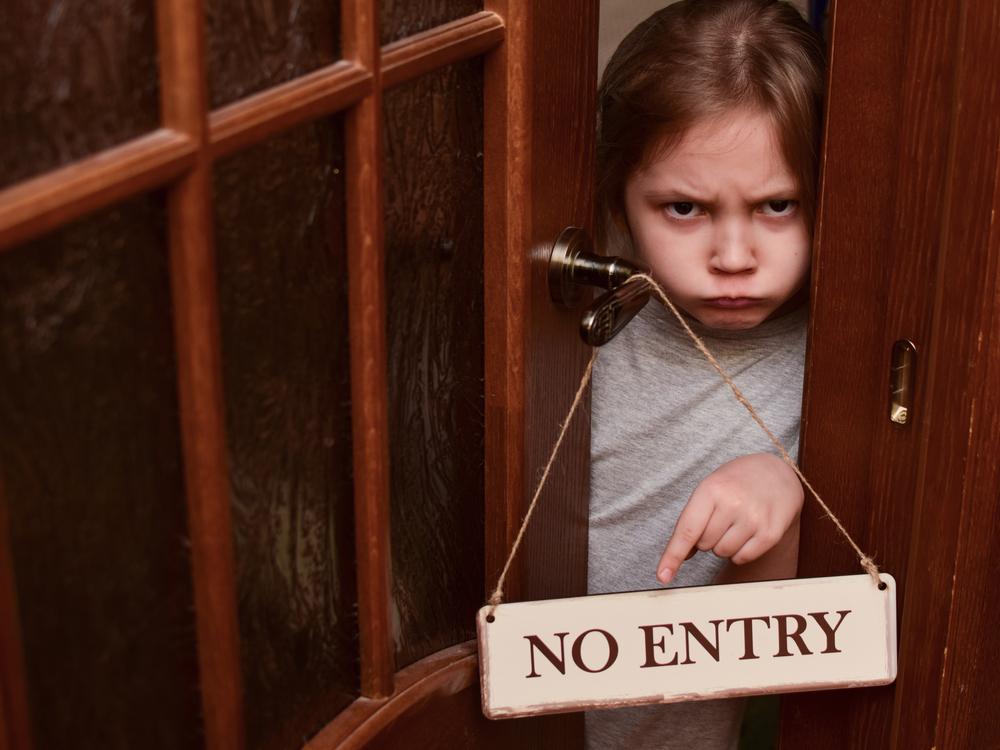Remember when you were a kid, and it felt like your family had this secret code that everyone just… knew? Those unwritten rules that were never explicitly stated but somehow became the lessons of your childhood? Well, we’re about to take a nostalgia trip through the silent lessons that shaped us all. Here are some unspoken family rules many of us grew up with, and the life lessons they sneakily taught us along the way.
1. “Don’t touch the thermostat.”

The sacred control of the home’s temperature wasn’t just about Dad’s comfort or the electricity bill. It taught us about shared resources, compromise, and sometimes, the art of layering clothes. In adult life, this extends to being mindful of shared spaces and resources, whether it’s in an office, a roommate situation, or on a global scale with climate concerns.
2. “Finish your plate.”

While this rule has been rightfully challenged (especially in recent years) its underlying principle of not wasting food taught us gratitude and awareness of resources. The modern version might be “take only what you can eat,” teaching us to be mindful of our consumption and aware of our needs versus our wants. On the other hand, if this has turned you into a clean plate club member and you’re over it, here are a few ways to quit according to Psychology Today.
3. “Don’t talk back.”

This controversial rule, when applied reasonably, wasn’t about suppressing opinions but about teaching respectful communication. It showed us that there are ways to express disagreement or frustration without resorting to rudeness or aggression. In adult life, this skill is crucial in everything from workplace disagreements to political discussions.
4. “If you can’t say something nice, don’t say anything at all.”

This classic rule wasn’t all about keeping the peace, it was teaching us the power of words and the importance of kindness. It didn’t mean we couldn’t disagree or express negative feelings, but it encouraged us to think before we speak and consider the impact of our words. Now, this translates to everything from workplace communication to navigating social media.
5. “The driver picks the music.”

This unspoken rule of road trips was actually a lesson in respecting authority and understanding that sometimes, you have to go with someone else’s choices. It taught us about compromise, taking turns, and that life doesn’t always play our favorite tunes. In the adult world, this helps when working with different leadership styles and adapting to various environments.
6. “If it’s broken, try to fix it before replacing it.”

This rule, often accompanied by Dad’s determined tinkering, was teaching us more than just thriftiness. It was about problem-solving, resourcefulness, and not giving up at the first sign of trouble. In adult life, this attitude applies to everything from household repairs to tackling challenges in relationships and careers.
7. “Clean up as you go.”

This wasn’t fully about keeping the kitchen tidy while cooking, it was a life philosophy in disguise. It taught us to deal with messes (literal and metaphorical) as they happen, rather than letting them pile up into overwhelming problems. In adult life, this applies to everything from managing email inboxes to addressing small issues before they become big ones.
8. “If you borrow it, return it in better condition.”

This golden rule of borrowing was about teaching us to add value in our interactions, to be trustworthy, and to show appreciation. In adult life, this principle applies to everything from workplace responsibilities to how we treat shared resources in our communities.
9. “If you make a mess, you clean it up.”

This classic rule was the unofficial introduction to personal responsibility. It wasn’t just about spills and toys, it was teaching us to own our actions and their consequences. In adult life, this helps us take responsibility for our mistakes, our work, and our impact on others and the environment.
10. “Don’t interrupt when adults are talking.”

While this rule has evolved (thankfully) to “don’t interrupt anyone,” its core lesson remains valuable. It taught us patience, respect for others, and the art of listening. In the adult world, these skills are crucial for effective communication, whether in personal relationships or professional settings (and here’s the fascinating psychology of why we interrupt, according to Psychology Today).
11. “Family comes first.”

This one taught us about loyalty, support, and the importance of our core relationships. It didn’t mean family was perfect or that we couldn’t forge our own paths, but it instilled in us the value of having a support system and being there for others. In adult life, this extends to creating our own chosen families and understanding the importance of community.
12. “If it’s not your room, knock first.”

Ah, the sacred art of respecting personal space. This unspoken rule wasn’t just about avoiding embarrassing moments (though that was certainly a bonus). It taught us the importance of boundaries and respecting others’ privacy. In the adult world, this helps us understand consent and personal limits. Who knew that a simple knock could be such a profound life lesson?
13. “The last bite is always up for grabs.”

In many households, the last piece of pizza or the final cookie was fair game for anyone quick enough to claim it. This wasn’t just about food, if you think about it, it was a crash course in opportunity. It taught us to seize the moment, to be decisive, and sometimes, to be generous and let someone else have it. In life, opportunities don’t always announce themselves—you’ve got to be ready to grab them.
14. “If you didn’t buy it, ask before using it.”

This rule was the introduction to property rights and respect for others’ belongings. It wasn’t just about avoiding your sister’s wrath when you borrowed her sweater without asking, it was about understanding ownership, responsibility, and the importance of communication. In the adult world, this translates to everything from borrowing a coworker’s stapler to respecting intellectual property.
15. “If you open it, close it. If you turn it on, turn it off.”

This mantra, often repeated in exasperated tones by parents everywhere, was more than just a plea for tidiness. It was teaching us about responsibility, mindfulness, and the impact of our actions on others. In the bigger picture, it’s about being aware of our footprint in the world and cleaning up our own messes—both literally and figuratively.








